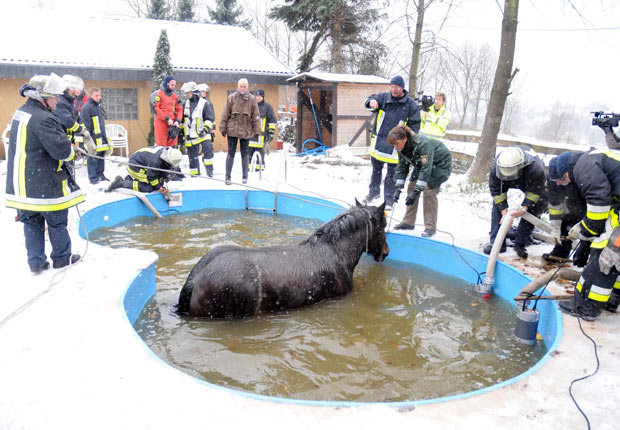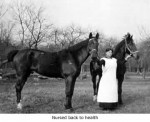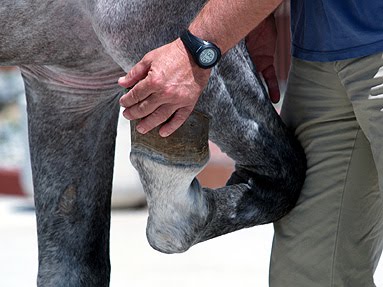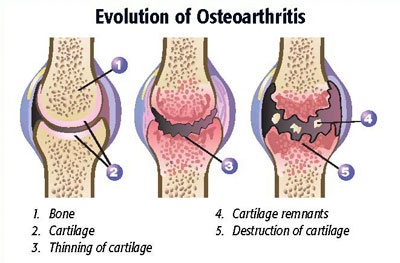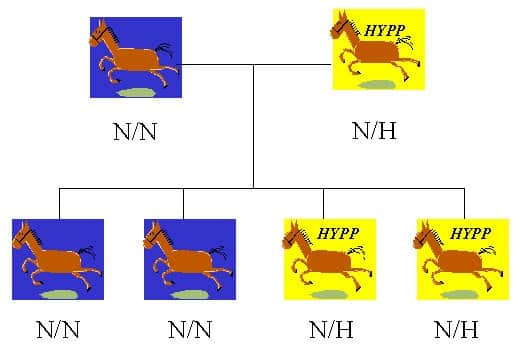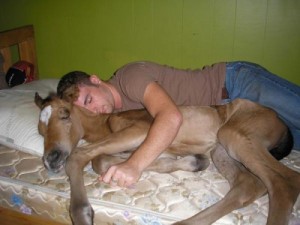 In some ways, being responsible for a horse is like being responsible for a very young child. Neither patient speaks for themselves, and each relies on someone else to make their decisions for them (and many of them don’t like their doctors). So, when there’s a problem – be it with a horse or with a child – you’re the one in charge. At these times, the question that often comes up is, “Do I need to call the doctor?”
In some ways, being responsible for a horse is like being responsible for a very young child. Neither patient speaks for themselves, and each relies on someone else to make their decisions for them (and many of them don’t like their doctors). So, when there’s a problem – be it with a horse or with a child – you’re the one in charge. At these times, the question that often comes up is, “Do I need to call the doctor?”
If you think that your horse has a problem, the most conservative thing to do – conservative being defined as the thing that carries the least risk – is to go ahead and pick up the phone to call your veterinarian. The upside to making an appointment any time that you think that there’s a problem is that nothing serious is likely to get missed, and treatment, if necessary, can start in a timely fashion (there’s not much worse, from a medical perspective, than trying to treat a condition that’s already well-established). Of course, the downside to the conservative approach is that it’s an expensive approach; no matter how serious the problem, each time that you make an appointment with your veterinarian, it’s going to cost you something out-of-pocket. But if the conservative approach is good for you, it’s almost certainly going to be endorsed by your veterinarian.
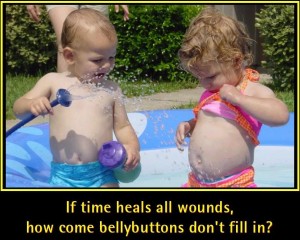 Still, not every problem that your horse can have is going to require a veterinary visit. The old adage, “Time heals all wounds,” is largely true; many conditions of the horse will take care of themselves if you just wait (although, in some cases, you may have to wait many months). But since some problems won’t get better with time, and some get much worse, here are some things to consider when it comes to making a decision about whether or not to pick up the phone (feel free to add to the list!).
Still, not every problem that your horse can have is going to require a veterinary visit. The old adage, “Time heals all wounds,” is largely true; many conditions of the horse will take care of themselves if you just wait (although, in some cases, you may have to wait many months). But since some problems won’t get better with time, and some get much worse, here are some things to consider when it comes to making a decision about whether or not to pick up the phone (feel free to add to the list!).
- Know yourself. Especially if you’re an inexperienced horse owner,
 call your veterinarian if you think that something is wrong. Don’t assume that everything is going to be OK. It’s better to find out that you didn’t need to call than it is to find out – too late – that you should have called.
call your veterinarian if you think that something is wrong. Don’t assume that everything is going to be OK. It’s better to find out that you didn’t need to call than it is to find out – too late – that you should have called.
- You know your horse; trust your instincts. In my practice, I find that people usually know their horses pretty well, because they spend a lot of time with them. Horses are creatures of routine; if they don’t act like they normally do, there’s often something wrong. You’ll probably notice such things. So, basically, if you think that there’s something wrong, there probably is, and if it’s bad enough to concern you (whatever “it” is), call your veterinarian.
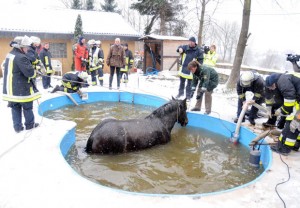 If you see something that you’re not supposed to see, call your veterinarian. For example, the horse’s skin keeps the outsides out and the insides in. If you’re seeing any of the insides, say, from an encounter with a sharp piece of metal, it’s time to get to the phone. A nail in your horse’s foot is something that can’t be denied; plan on your veterinarian making an emergency visit if you see such a thing.
If you see something that you’re not supposed to see, call your veterinarian. For example, the horse’s skin keeps the outsides out and the insides in. If you’re seeing any of the insides, say, from an encounter with a sharp piece of metal, it’s time to get to the phone. A nail in your horse’s foot is something that can’t be denied; plan on your veterinarian making an emergency visit if you see such a thing.
- Pay attention to pregnant mares. Pregnant mares need care during their pregnancy, and your veterinarian is your best source of information about what’s best for your mare, as well as the foal that she’s carrying. All sorts of changes occur during a mare’s pregnancy, and your veterinarian should check your mare regularly during gestation, and immediately after foaling (of course, foaling problems are a veterinary emergency). And, of course, when it’s foaling time, everyone should be on alert.
- A fever is a sign of infection, and infections often require treatment. If you don’t have a rectal thermometer, go get one. If your horse’s temperature is greater than 101 degrees Fahrenheit, then it’s probably worth a call to your veterinarian.
- An obvious limp is usually worth a call. A horse that’s a little bit off might recover with a few days of rest, but a horse that’s having trouble bearing weight on a limb is a horse that should be seen by your veterinarian.
- The phrase, “Eating like a horse,” was coined for a reason. If your horse isn’t eating, call your veterinarian.
- Colic (defined a pain that originates from the horse’s abdomen) is the bane of the horse world. However, just because your horse has colic
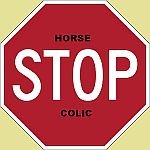 doesn’t mean that the end is at hand. In fact, most colics will resolve with a minimum of care. As a rule, the more dramatic the signs of colic (rolling, pawing, biting the flanks, etc.), the more likely it is that you should call your veterinarian. Even so, remember that the most conservative thing to do when your horse has colic is to call your veterinarian; even horses with serious problems can be saved if the problem is caught early enough.
doesn’t mean that the end is at hand. In fact, most colics will resolve with a minimum of care. As a rule, the more dramatic the signs of colic (rolling, pawing, biting the flanks, etc.), the more likely it is that you should call your veterinarian. Even so, remember that the most conservative thing to do when your horse has colic is to call your veterinarian; even horses with serious problems can be saved if the problem is caught early enough.
- If your horse is holding his eye shut, call your veterinarian. A closed eye indicates pain, and painful eyes usually have problems that need to be treated.
- Call your veterinarian if a non-serious problem doesn’t go away after few days. Even problems that aren’t serious or life-threatening, such as a skin problem, may not resolve unless the condition is recognized and treated. That’s the job of your veterinarian.
Still, not every little glitch requires a veterinarian’s attention. It’s not a bad idea to be patient with inconsistent problems. If you’re not sure if your horse has a problem (“Hmmm, I wonder if he’s a bit off”), look at him every day and see if you’re seeing the problem regularly. Keep notes, too, so that if you do call your veterinarian, he or see will have some good history to work with.
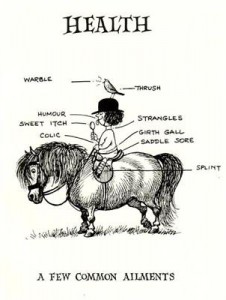 That said, if you’re concerned enough to wonder if there is a problem, also be conservative in managing your horse. So, for example, if you think your horse is lame, cut back on exercise for a few days, instead of riding him normally and potentially turning a minor problem into a major one. If you think he doesn’t feel good, don’t take him out and make him jump fences; would you want someone to force you to exercise if you didn’t feel well? A good bit of common sense goes a long way when it comes to looking after your horse.
That said, if you’re concerned enough to wonder if there is a problem, also be conservative in managing your horse. So, for example, if you think your horse is lame, cut back on exercise for a few days, instead of riding him normally and potentially turning a minor problem into a major one. If you think he doesn’t feel good, don’t take him out and make him jump fences; would you want someone to force you to exercise if you didn’t feel well? A good bit of common sense goes a long way when it comes to looking after your horse.
If you have a question, pick up the phone and call your veterinarian. Sometimes, I find that people will worry that if they call, it might be a bother. It’s not. Veterinarians really do care about horses, and we all want to have the opportunity to see a problem early, when we might be able to do something about it, rather than when it’s too late.

